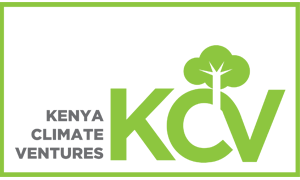Patrick Watene, the Co-founder of Adarsh Polymers is appreciative after Kenya Climate Innovation Center supported him with Early-Stage Financing (ESF) to expand his venture of converting waste plastic into fuel. The recently funded entrepreneur has since managed to expand his venture by investing in more equipment and consequently employing more people to run the equipment.
“We received this funding last month and it has been very instrumental because it has been coupled with technical support and market outreach,” Patrick says. “Since last year June, KCIC has been instrumental in the growth of our business and we can confidently say that they are helping us scale up steadily.”
Adarsh Polymers is an engineering company working on providing affordable alternative energy solutions from recycled waste plastics. They are in the business of sustainable conservation of the environment especially within Nairobi County. The company is now working with with Kenya Climate Ventures and KCIC Consulting who are assisting with the management of the ESF funds, communication and marketing and technical business advisory.
“We have contracted Community Based Organisations (CBOs) from Kayole, Dandora and Saika sub-counties who collect the waste plastics from Nairobi and its environs and they come sell that to us,” he says. “This in return means that KCIC has assisted us to create more employment opportunities for the young people.”
It is estimated that more than 300 tonnes of solid waste is produced in Nairobi County each day. Of this, only 30% ends up in the dumpsites while the remainder is all the county. Adarsh manages to process approximately four tonnes every day.
“We have seen allied players get into the business of recycling and as part of our core business, we are open to offering training to those aspiring to venture into this industry,” Patrick explains. “Every week we get visitors at our Njiru-based factory who are willing to learn more about what we do.”
Adarsh has adopted a model for recycling whereby the company ensures that there is no waste from the company. “We produce Carbon black as a waste from this process which we in return use to produce briquettes for industrial use,” Patrick says. “Our products – industrial fuel, safi makaa (packaged briquettes) and services – waste management and environment conservation, are available to Kenyan consumers, mostly corporate institutions.”











